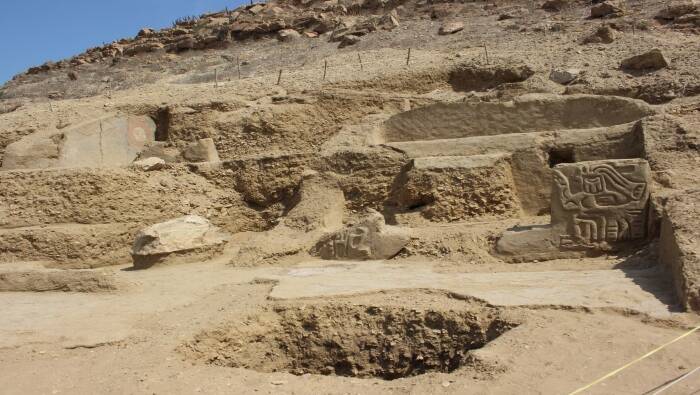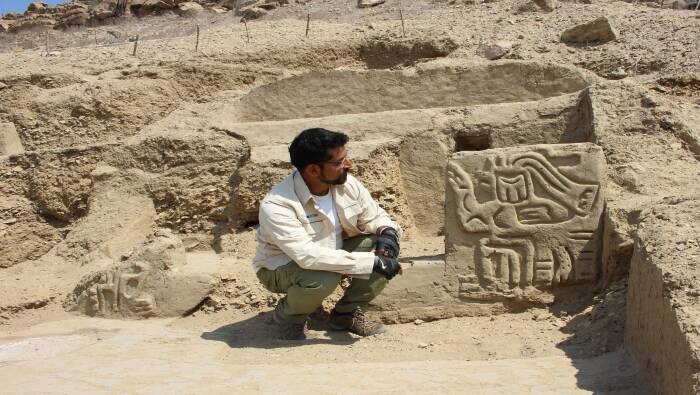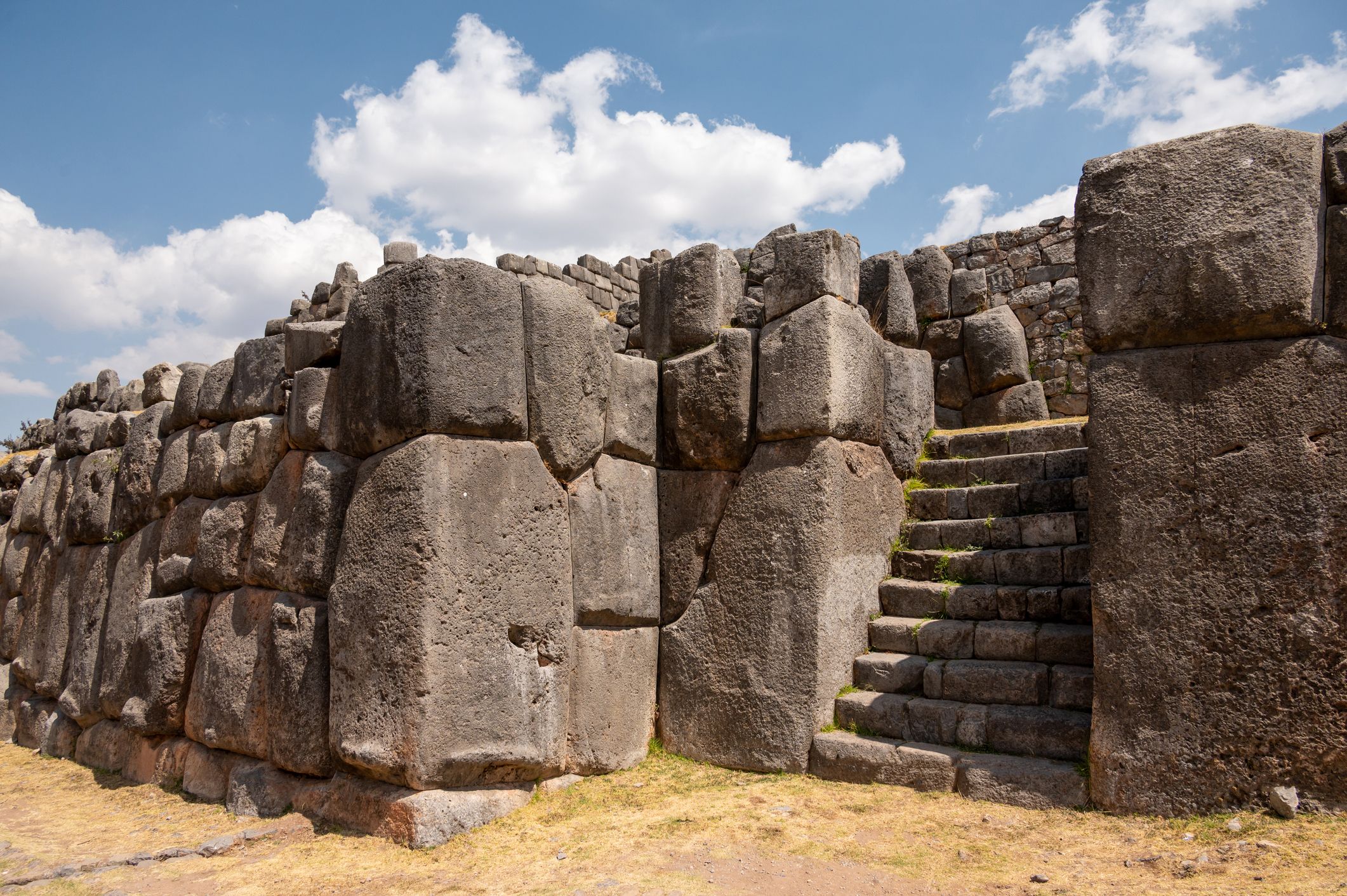Latin America
Showing Original Post only (View all)5,000-Year-Old Ceremonial Temple Discovered Under Sand Dune In Peru [View all]
By Kaleena Fraga | Edited By John Kuroski
Published July 11, 2024
Updated February 17, 2025
The temple contained the bodies of three adults and may have been the site of human sacrifices.

DDC Lambayeque
The temple is near the coast and about 500 miles north of Lima.
Beneath a sand dune near Zaña, Peru, archaeologists have unearthed the ruins of a stunning ancient temple — and it could be 5,000 years old. The mud structure contains impressive friezes and several human remains.
And the temple was just one exciting discovery that archaeologists made in the region during their excavations.
The Temple Under The Sand Dune
According to a press release from Peru’s Ministry of Culture, excavations in the Úcupe-Zaña Valley, about 30 miles from the city of Chiclayo, began on June 3. Before long, they yielded astonishing results.
Under a sand dune, archaeologists came across the remains of a stunningly well-preserved temple “belonging to the formative period that would be approximately five thousand years old.”

DDC Lambayeque
The temple included detailed engravings like this one.
“We are probably looking at a five-thousand-year-old religious complex that is an architectural space defined by walls built of mud,” Dr. Luis Armando Muro Ynoñán of Peru’s Pontifical Catholic University, who led the excavation, explained. “We have what would have been a central staircase from which one would ascend to a kind of stage in the central part.”
More:
https://allthatsinteresting.com/zana-peru-temple
~ ~ ~
Archaeologists Discover a New Pyramid from the Caral Culture, Known as South America’s Oldest Civilization

The temple included detailed engravings like this one. Image Source: DDC Lambayeque
© DDC Lambayeque
The team from the Caral Archaeological Zone has discovered a new pyramidal structure in the “Sector F” of the Chupacigarro archaeological site, located one kilometer west of the Sacred City of Caral-Supe, a World Heritage site, in the Supe Valley, Barranca province, Lima Region, Peru.
The discovery was made by a multidisciplinary team from the Caral Archaeological Zone, led by Dr. Ruth Shady. Originally covered with huarango trees and bushes, the structure later revealed stone walls with at least three superimposed platforms and large ‘huancas’ (vertical stones) marking the corners of the building.
The structure, which is quadrangular in shape, features a central staircase that allows access to its summit. The “huancas” served not only a structural function but also a symbolic one, highlighting the ceremonial importance of the site.
The site contains 12 public or ceremonial structures distributed across hills, presided over by a Main Building with a sunken circular plaza. Additionally, residential areas have been identified on the periphery, suggesting a small urban center of 38.59 hectares with both public and private functions.
Chupacigarro is situated adjacent to a small water ravine, in proximity to the Sacred City of Caral Supe. The recently uncovered pyramid is an integral component of a broader network of architectural structures identified across multiple archaeological sites within the Supe Valley region.
More:
https://arkeonews.net/archaeologists-discover-a-new-pyramid-from-the-caral-culture-known-as-south-americas-oldest-civilization
~ ~ ~
Archaeologists Found a Lost Temple in the Sand That Solves a Major Historical Puzzle
The excavation also turned up human remains.
BY TIM NEWCOM
PUBLISHED: JUL 18, 2024 9:15 AM EDT

Stefan Cristian Cioata//Getty Images
Archaeologists recently found the lost ruins of a ceremonial temple—covered in sand and 4,000 to 5,000 years old—in northwestern Peru. The excavation team first discovered the walls, and subsequently unearthed a mix of features indicating that the structure was once a temple. And then came the skeletal remains of three adults tucked between walls.
“We may be facing a 5,000-year-old religious site that constitutes an architectural space defined by walls built by rammed earth,” Luis Armando Muro Ynoñán, director of the Cultural Landscapes Archaeological Project of Ucupe — Valle de Zaña, said in a translated statement from the Peruvian Ministry of Culture.
The oldest portion of the site features not only the up-to-5,000-year-old walls, but also various architectural features that help define the site as a ceremonial temple. “We have what would have been a central staircase from which one would ascend to a kind of stage in the central part,” Muro Ynoñán said, noting that the stage could have hosted ritual performances in front of an audience.
The ruins include friezes with images of cats, the claws of a reptile, and a human body with the head of a bird. The designs are preserved in “fine plaster,” which has helped scientists nail down the exact age of the site and the origins of the religion. The team plans to study the chemical makeup of the pigments in the murals painted on the walls to help confirm how old the site is this fall.
More:
https://www.popularmechanics.com/science/archaeology/a61571250/ancient-lost-temple-peru-discovery/
Or:
https://www.removepaywall.com/search?url=https://www.popularmechanics.com/science/archaeology/a61571250/ancient-lost-temple-peru-discovery/
